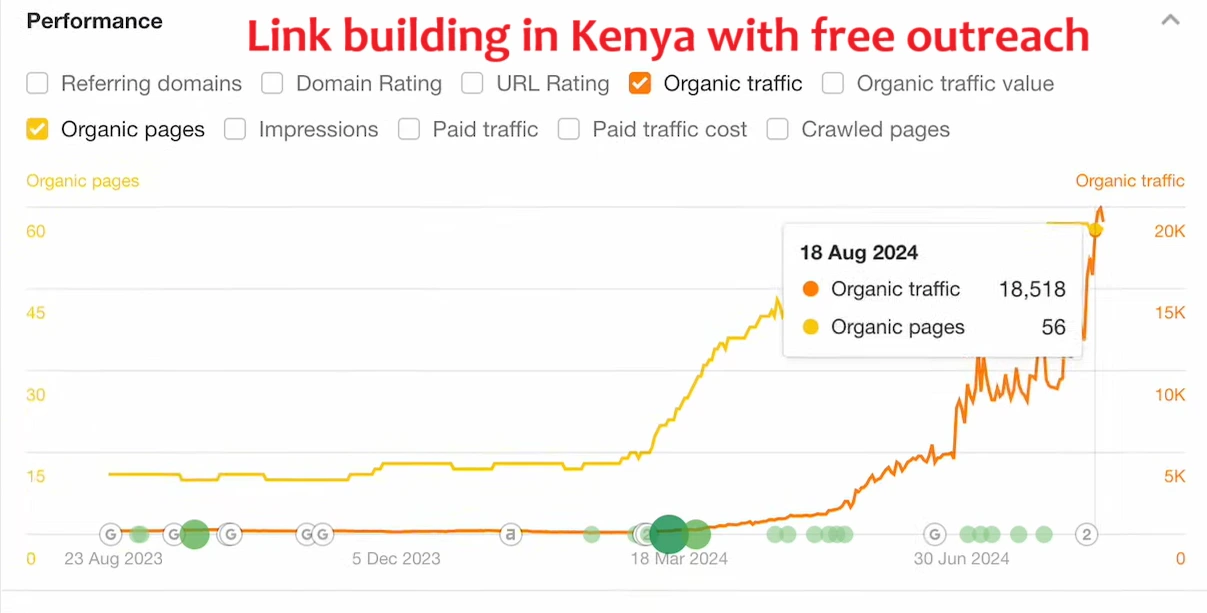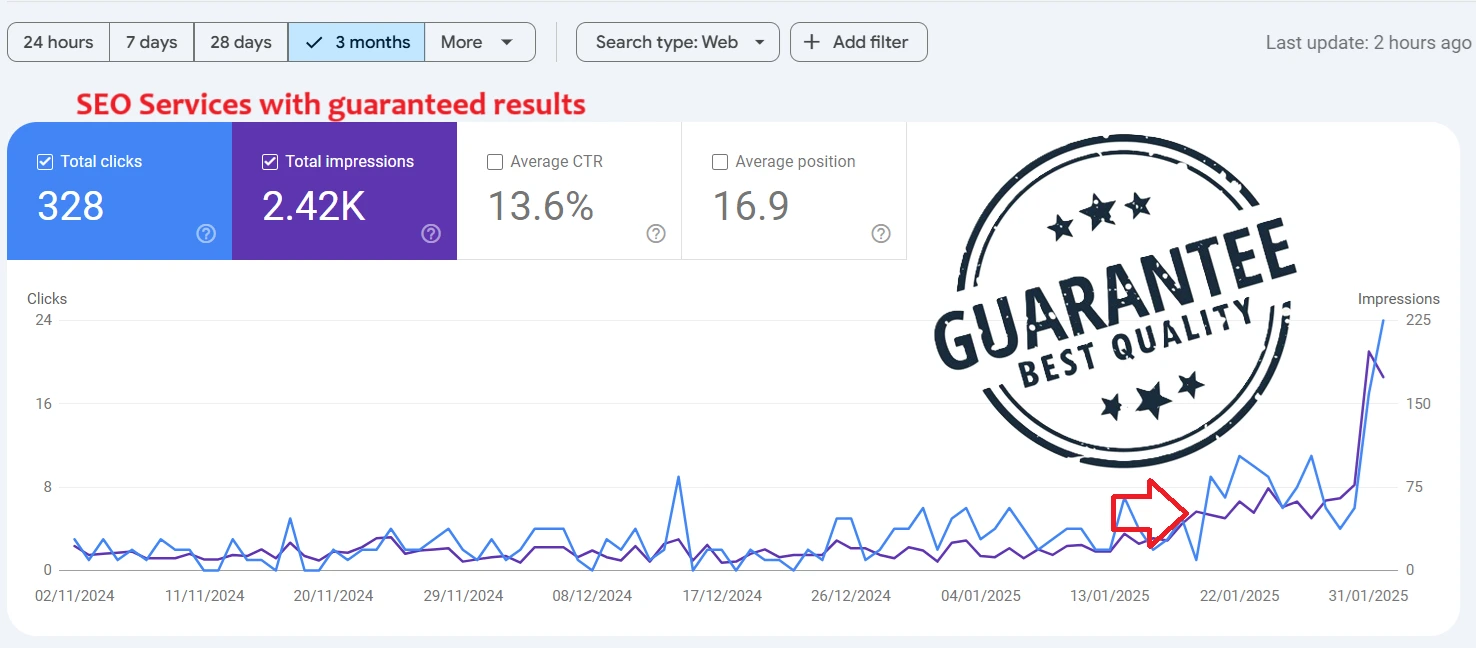Link building can feel like a daunting challenge, especially in Kenya, where competition for online visibility is growing rapidly.

Without the right strategies, it’s easy to get lost in the crowd, struggling to secure the backlinks needed to boost your website’s authority and ranking. But what if you could create irresistible assets that naturally attract links from bloggers, journalists, and fellow website owners?
In this guide, I will show you how to create a very nice link-building asset suitable for your audience and ensure your site stands out in the Kenya.
Find Journalistic Keywords
Start by finding journalistic keywords—those specific terms journalists and bloggers search for when they need stats or data to back up their articles.
These keywords are not about attracting clicks from general audiences but about becoming a trusted source that other websites link to.
Unlike traditional high-volume keywords, journalistic keywords often have low search volume but immense value for link building.
They’re typically tied to specific questions or data points, like “How many people in Kenya use mobile internet?” or “What percentage of Kenyans shop online?” These are the kinds of queries journalists are looking to answer when writing stories about tech trends or online shopping behavior.
To identify these keywords, analyze content in your niche that already attracts backlinks. Tools like Ahrefs or SEMrush can show which pages on competitors’ sites have earned links and what anchor texts or phrases led there.
This analysis often reveals that many links point to a single statistic or fact, making it clear what journalists are searching for. Once you have a list of relevant keywords, you’re ready to create content that is fit for them.
Create Content Based on the Journalistic Keywords
Once you’ve identified your journalistic keywords, the next step is creating content that journalists and bloggers can’t resist linking to.
The trick is to make it straightforward, scannable, and packed with value.
1. Front-Load the Key Information
Don’t make readers hunt for what they need. Start your content with the main statistic or data point they’re looking for.
For example, if your target keyword is “How many Kenyans use mobile internet?” open with a simple and direct answer, such as, “In 2025, over 80% of Kenyans access the internet via mobile devices.”
2. Use Simple, Digestible Formatting
Structure your content in a way that’s easy to skim. Use:- Short paragraphs to keep readers engaged.
- Bullet points for lists or supporting data.
- Headings and subheadings to guide readers to the right sections.
For instance, after presenting the main stat, include related facts like growth trends, regional comparisons, or predictions.
This not only enriches the content but also positions your page as a comprehensive resource.
3. Support the Primary Data with Context
Add supplementary information to give depth to your content.If your stat is about mobile internet users, include insights like smartphone penetration rates in Kenya, the percentage of e-commerce activity happening on mobile, or shifts in digital trends.
4. Keep It Fresh and Reliable
Journalists and bloggers are more likely to link to up-to-date and authoritative content. Ensure your data is current and well-sourced.Linking to credible studies or research strengthens your content’s trustworthiness and improves its chances of earning links.
When your content is scannable, clear, and provides exactly what your audience is looking for, you’ll position your site as a go-to resource.
And once you do that, the backlinks will start rolling in.
Make Your Content the Go-To Resource
To truly stand out and attract consistent backlinks, your content needs to be the go-to resource for the chosen topic.
This means creating something so valuable that journalists and bloggers can’t help but link to it.
1. Research What’s Already Out There
Start by analyzing the existing content on your topic. Look at the top-ranking pages for your journalistic keywords. What are they doing well? Where are they falling short?
For example, if a page answers “How many Kenyans shop online?” but hasn’t updated its data in two years, that’s your opportunity to provide fresher, more relevant information.
2. Offer More Than Just the Basics
Don’t just stop at answering the main question. Add context, deeper analysis, and supporting statistics.For instance, if the keyword is about online shopping trends in Kenya, go beyond the numbers. Include insights into popular product categories, regional preferences, and growth forecasts.
This makes your content richer and more valuable to anyone linking to it.
3. Present Data in Engaging Formats
The way you present information matters. Incorporate visuals like charts, graphs, or infographics to make your content more appealing.A graph showing the rise of e-commerce in Kenya over the last five years, for example, can make your data more shareable and link-worthy.
4. Prioritize Accuracy and Authority
Outdated or poorly sourced data is a dealbreaker. Ensure your content cites reputable sources and double-check every statistic.Accuracy builds trust and increases the likelihood of backlinks.
5. Make Navigation Easy
Even if your page is packed with information, it should never feel overwhelming. Use clear headings, concise sections, and jump links where appropriate.This helps journalists find what they need quickly and improves your chances of being referenced.
Attract Links Without Outreach in Kenya
Here’s the beauty of creating link-building assets tailored for journalistic keywords: you can attract high-quality backlinks without sending a single outreach email.
The process revolves around aligning your content with the natural behaviors of journalists and bloggers.
1. Target Keywords Journalists Already Search For
Journalists and bloggers are always in need of specific data to back up their stories.By optimizing your content for journalistic keywords—like “Mobile Internet Usage in Kenya” or “E-commerce Trends in Africa”—you position yourself directly in their search path.
When they type these queries into Google, your page should be the first thing they see.
2. Create Hyper-Specific Content
Having long lists of stats can be useful. However, hyper-focused content often performs better.A dedicated page answering “What percentage of Kenyans use smartphones?” is more likely to earn backlinks than a generic “Tech Stats for Africa” article. Specificity makes your content more relevant and easier to cite.
3. Be the Simplest, Most Direct Source
Journalists are busy. They’re more likely to link to a page that immediately provides the information they need rather than one buried in a wall of text.Make your stats easy to find, clearly presented, and accessible right at the top of the page.
4. Rely on Search Rankings for Visibility
With the right optimization, your content can rank for the terms journalists are actively searching for.Focus on producing high-quality, keyword-rich content to boost your chances of appearing at the top of search engine results.
5. Let the Data Do the Work
If your content is authoritative, easy to navigate, and backed by credible sources, it will naturally attract links over time.Journalists will cite your page because it simplifies their research process, and bloggers will use your stats to add credibility to their posts.
This passive link-building approach saves you time and effort while building your site’s authority.
Maximize the Value of Your Link-Building Assets
Creating content that attracts backlinks is a fantastic start, but to truly make the most of those links, you need to funnel their authority strategically across your site.
This ensures the benefits extend beyond just the initial page.
1. Internal Linking to Boost Key Pages
Use the authority gained from your link-building assets to strengthen other important pages on your website.For example, if your “Mobile Internet Usage in Kenya” page earns backlinks, link it to related content such as blog posts about mobile-friendly website design or product pages for mobile optimization services.
This internal linking distributes the authority across your site, improving the rankings of your money pages.
2. Prioritize Relevance
When linking from your asset page, ensure the links point to pages that are contextually relevant.For instance, if your stats page is about e-commerce growth in Kenya, link to a landing page about e-commerce services rather than something unrelated like SEO for restaurants.
Relevance enhances user experience and reinforces the value of your internal links.
3. Create a Link Hierarchy
Think of your site as a web where authority flows logically. Start by linking your most authoritative stats pages to mid-level category pages and then to specific product or blog pages.This structure helps search engines understand the importance of each page while boosting the visibility of key content.
4. Regularly Update Your Links
As your site grows and evolves, revisit your link-building assets to ensure your internal links are still relevant and effective.Update links to reflect new content, prioritize newer or higher-performing pages, and remove any links that no longer serve a purpose.
5. Track and Analyze Performance
Use tools like Google Analytics and Ahrefs to monitor how your link-building assets impact your site’s performance.Look at metrics such as referral traffic, keyword rankings, and domain authority to ensure your strategy is delivering results.
Do you need help in Link Building in Kenya?
If you’re ready to take your link-building strategy to the next level, why not partner with the experts?
At SEO Kenya Limited, we specialize in helping businesses like yours create winning SEO strategies that drive results.
Book a consultation with us today and let’s get started on transforming your site into a backlink magnet.




